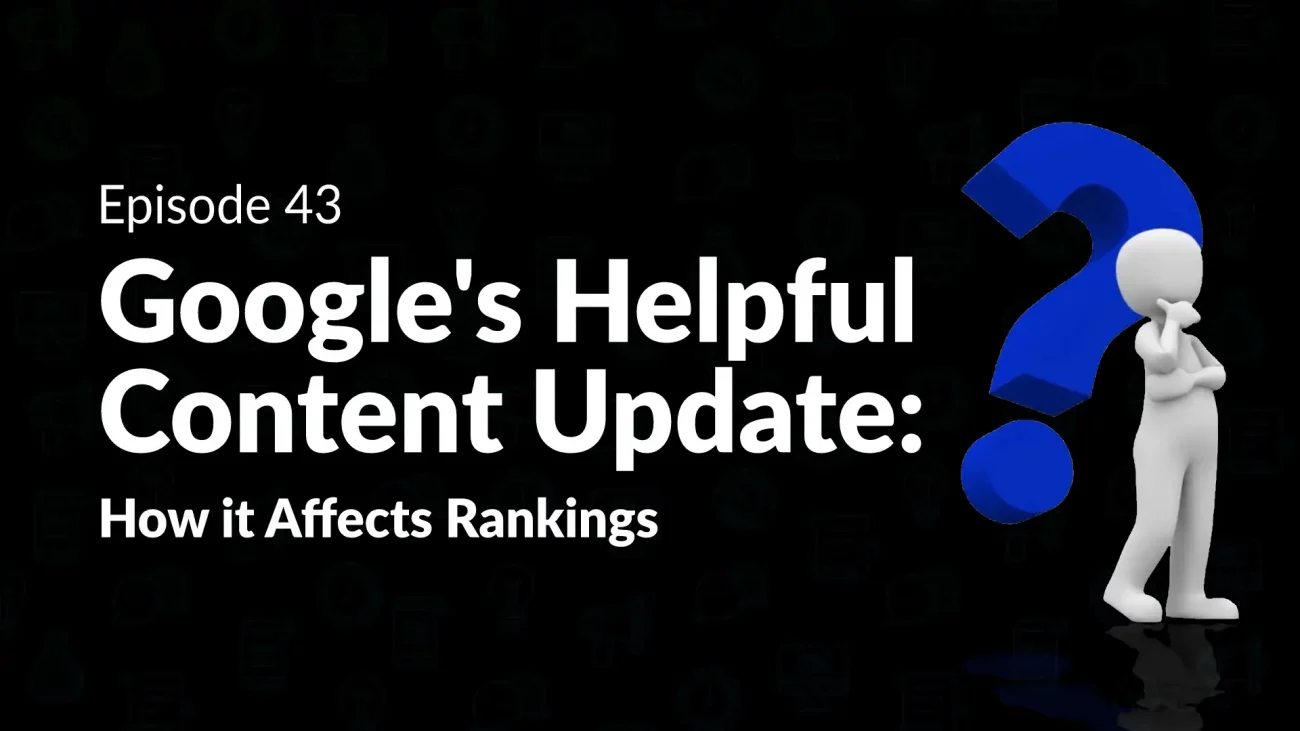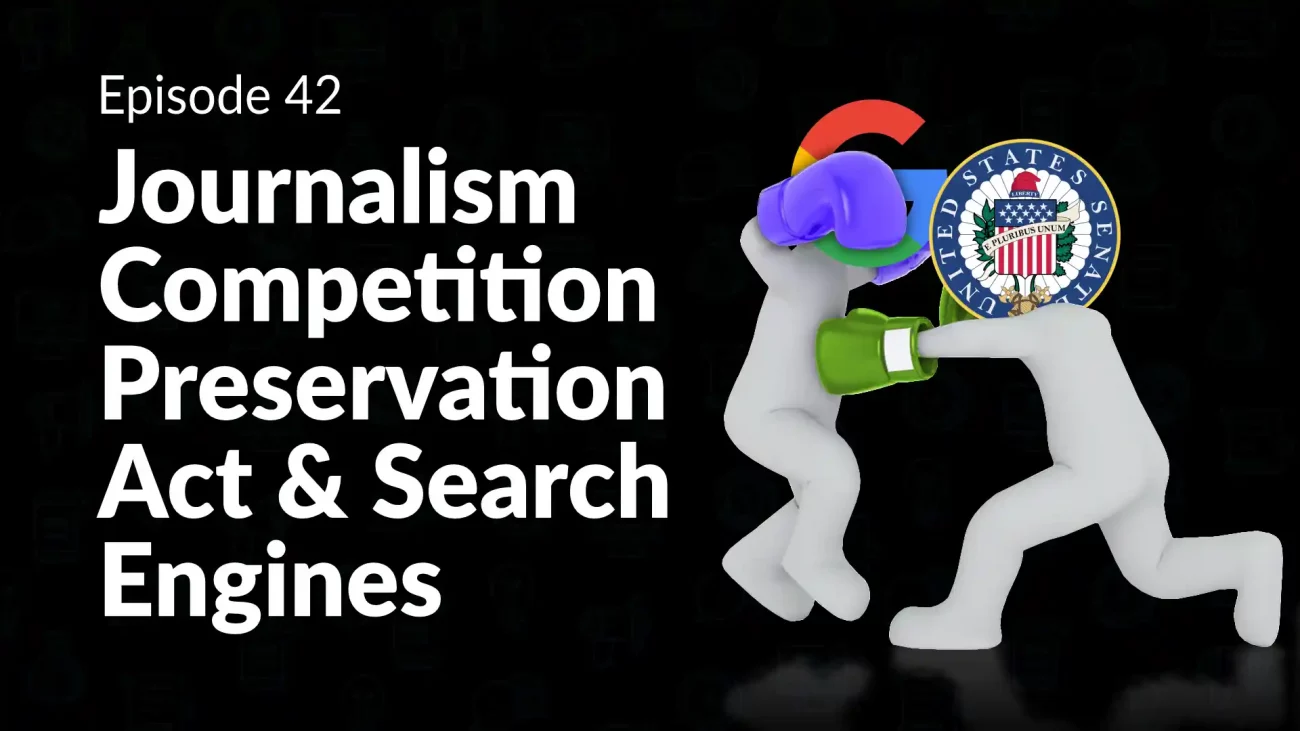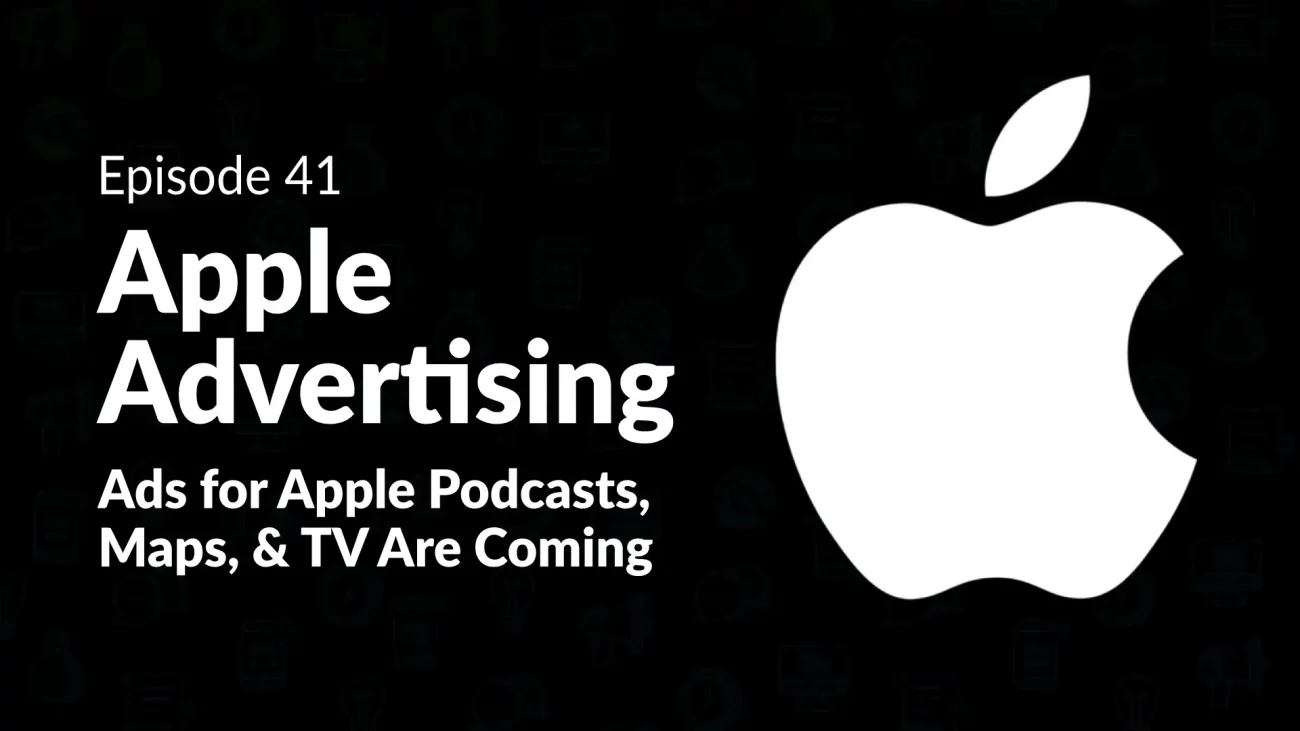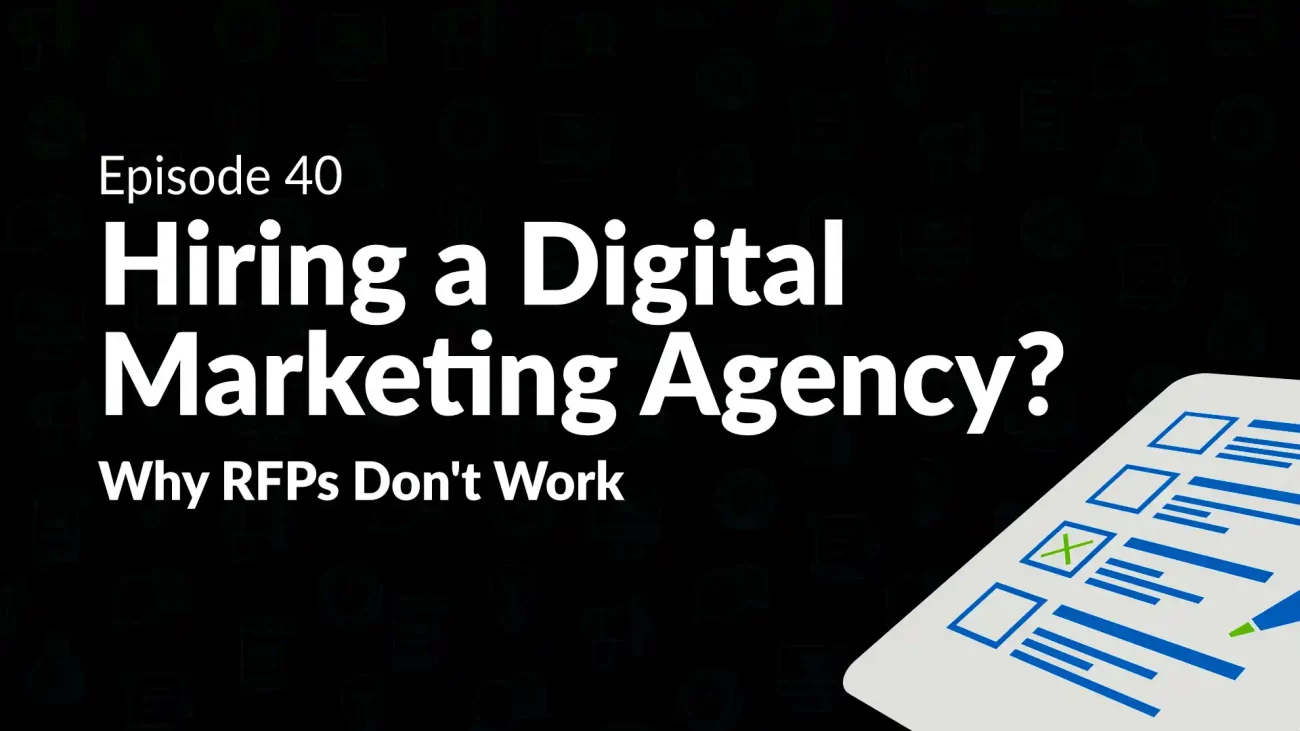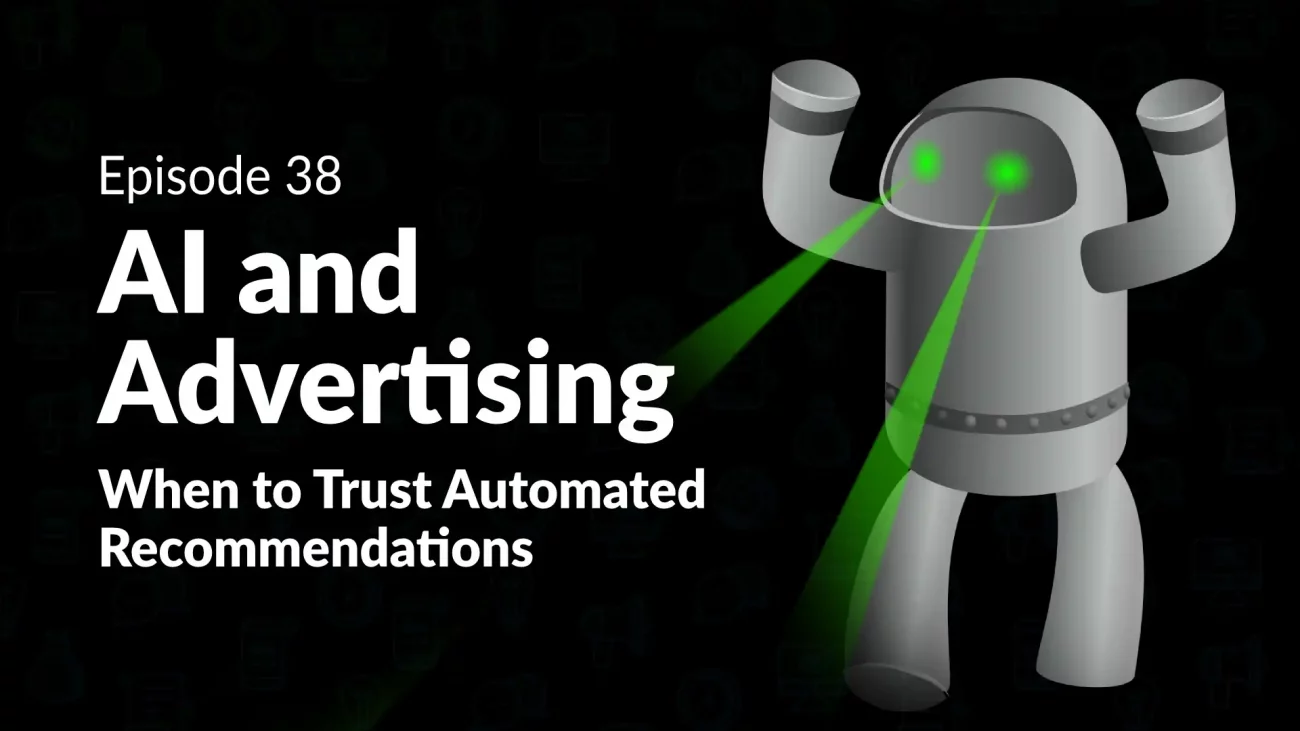Episode 20: Branded Keywords Sponsored in Paid Search: Is it Helping or Hurting?
Sponsoring your brand or trademark as a keyword in paid search might seem like a great strategy to beat out your competition. Over the years, we have seen this strategy work for some clients, but for others, we have witnessed it hurt the bottom line. Flipping this technique on its head by sponsoring branded keywords belonging to your competition may seem like a great way to take over some of their market share in your industry, but this can create its own problems and even trigger a keyword bidding war where the only winner is Google.
In this week’s Digital Marketing Monday, Devin and Hans discuss how to determine when it is appropriate to sponsor branded keywords and how to avoid situations where you would waste your ad spend or instigate competitors to go on the offense.
Transcription:
Devin:
You’re listening to Digital Marketing Mondays. Each week, we bring you new and exciting content from around the marketing industry and help give you, the marketer, insights into what’s happening. We’ll offer our advice and share some takeaways to help you to develop better strategies for your marketing. Ideally, this will also help you improve your ROI as well. So with that, let’s tune into this week’s episode.
Hans:
So Devin, I’ve got a thought today. I’ve been hearing some things from clients, both pro and con, about sponsoring your brand name as your keyword in paid search. So we’re talking about paid search ads where either your company name or your product name, something that’s your trademark or brand, sponsoring that as a keyword. We’ve had these conversations off and on with clients for years. Why don’t we talk a little bit about that? Let’s start off with does it make sense? And if so, when?
Devin:
Yeah, so I think the biggest thing that you need to think through in looking at any type of brand campaign like this is, what’s the ultimate goal, right? And what does your competition look like here?
Devin:
We actually ran into a client recently, they were running branded search campaigns, but they didn’t have any competition that was showing ads in front of them. And they were also ranking for their own brand term organically in position number one. So I guess the question there that we had to ask them was, why are you doing it? What’s the precipice for it? There’s no benefit to paying in that scenario for an ad click when somebody was very, very likely, 99% in fact, to be clicking on your own organic results. And so that’s a great example one, a reason why I don’t think you should be running any type of branded search campaigns. Now, in the opposite scenario, a different client has competitors that are actively advertising against our clients’ brand terms. And that would be a very, very, very strong reason to be running some type of paid branded search ad, because that other competitor may be stealing your market share.
Devin:
Yes, they are ranking number one organically for their own brand term, of course, but it’s really at that point, especially if there are multiple competitors involved, the organic result may actually be below the fold or below the viewport of what you can actually see on your browser when you type in their brand name into Google. So in that instance, it may make a lot of sense to do that. So, it entirely just depends on the scenario.
Hans:
Yeah. Got to keep in mind that Google, especially, but pretty much anybody else, DuckDuckGo, et cetera. The ad shows up above whether it’s on mobile or desktop, the ad shows up before the organic listing. So somebody who’s looking for your company, the first thing they see is your competitor running an ad, that’s not a great thing. So, I guess the take home tip here is that you probably should be typing your company name, your product name, your trademarks into a search engine like Google, at least once a week or so. And if nobody else is advertising on it, then okay, you’re fine. But if somebody does start advertising, then you better jump in there and compete against them.
Hans:
And I’ve also found that if you do, if somebody is trying to competitively advertise against your brand name, doing that against the actual brand owner is difficult if the brand owner advertises, because they’re going to get cheaper clicks, they’re going to have better quality scores, because people typing your brand actually looking for you, right? And so typically, what that’s going to do is it’s going to, if your competitor continues to advertise against you, it’s going to force their cost per click to go way up and probably their click-through rate to go down. So that’s a competitive strategy. But the trick is to know when to do it when not to do it. And the way to tell is to use a clean browser and go in, type your trademarks in and see if your competitors show up in that spot with ads, right?
Devin:
Yeah. Or using other competitive intelligence tools like Semrush, SpyFu, those will pretty quickly tell you, other folks, whether by keyword or by domain, if they’re going to be sponsoring specific terms. The only point that I’ll add here, Hans, is that in some scenarios, if you’re a client and you’re sitting here thinking about, am I currently in a need to run a brand search campaign? It’s probably, if anything, if you currently do not have anybody advertising against your brand terms, you could very well instigate the need to run a branded search campaign if you start competitively targeting those folks, right? With their branded search terms.
Hans:
So when you target your competitors first, then they’re going to come after you and start sponsoring your keywords. Is that what you’re saying?
Devin:
They could if they’re paying attention and if they’re halfway smart people, they would. My warning shot here is to make sure you count the costs so to speak, when you’re looking at, whether you run competitive search ads, because then you will also likely need to pay for branded search campaigns. And in the same way, if you have competitors that you are not currently bidding against, but they’re bidding against your name, you could very well put the pain on by running competitive search campaigns against their terms as well. It’ll ultimately cost you, the business owner, more, but they’re stealing your market share so why not go after theirs? The only other…
Hans:
Google wins in any case, right?
Devin:
Yeah. Yeah. Google wins in either case. So it doesn’t matter. Though, that does lead to my little pro tip that I was also just about to add, really be thinking about where Bing sits in the mix here or Microsoft Ads, because there is a growing market share with that search engine now with the amount of control that they have inside of Windows 11. So you may want to consider looking at even running smaller campaigns inside of Microsoft Ads for competitive search ads, as an example, or even branded search, if they’re also competing against you on that platform too, because it’s really, really cheap to do so it’s significantly cheaper than it is in Google currently. Obviously not the market share, but that’s a really good cost-effective way to be able to steal some competitive market share if that’s kind of what you’re going for.
Hans:
Yeah. And those Microsoft Ads are not showing up because you’re using Edge or something or it’s tied into the Windows Operating System. But DuckDuckGo, for example, is using both the organic results from Microsoft from Bing and the Ads. So if you’re advertising on Microsoft, your Ads are showing up on DuckDuckGo, right? So that’s part of why their share is rising. So yeah, really good point. That’s interesting.
Devin:
Yeah. Yeah. So that’s the pro tip for the day. And if you’re thinking about this or want some other thoughts, feel free to reach out to Hans or I, and we can help you form up an ad strategy and really help you think through what that could look like for this year.
Hans:
We had one more sort of use case, and that was a company that changed the trademark, changed the product name or a company name and were running branded search ads on the old company name because the URL had changed. Now, they were still showing up in organic, but had a couple of competitors in there on the old product name. So, that makes sense in that case too. So if you’re changing your branding, that’s another time I think it makes sense to consider it. So, all right?
Devin:
Yeah. Good call. Good call.
Hans:
Okay.
Devin:
Awesome. Thank you, sir.
Hans:
Well, thank you. All right. Thank you. Talk soon.
Devin:
Sounds good. Thank you so much for tuning in. We really appreciate you taking the time out of your busy day to engage with our content. Whether you’re watching on YouTube or subscribed on our podcast apps, we appreciate you taking the time. Make sure to leave a comment down below and let us know any feedback that you have for us. We’re always watching the comments and engaging in any way that we can. So if you find this content useful, also make sure to subscribe or give it a big thumbs up. We appreciate it. Thanks so much.




